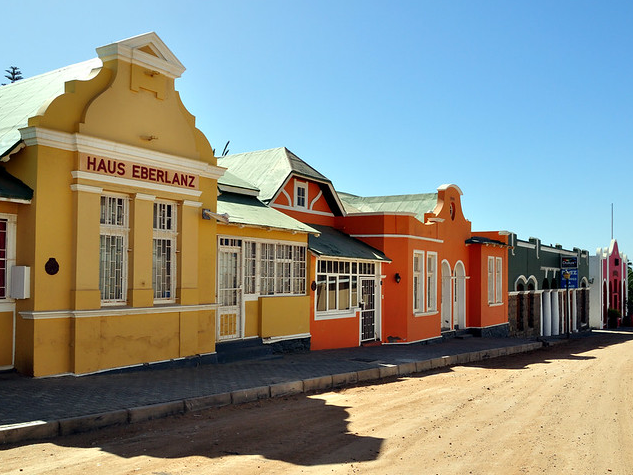Authorities in Namibia have invited Germans to emigrate to the African nation and former German colony to escape the ongoing European energy crisis.
Namibia’s government has announced a new visa scheme for German citizens looking to temporarily emigrate to the African nation, with authorities reportedly billing the country as a cheap and comfortable place to wait out the European energy crisis.
The scheme has been described as being a “slap in the face” for the German government, which only last week sent its Economics and Climate minister, Robert Habeck, to Namibia in the hopes of sourcing clean hydrogen energy.
However, according to a report by Bild, the African nation — which was briefly a colony of Germany around the turn of the 20th century — now wants to draw members of the German public away from their home country entirely.
“You Germans are very welcome to us!” Nangula Uuandja, the CEO of the Namibian Investment Promotion and Development Board — a body reportedly linked to the country’s presidency — said.
The senior official went on to describe Namibia as being “Germany’s little sister”, emphasising that EU state’s language and culture remains embedded in the African nation.
“We have cities that look like German cities. This is your second home here, a piece of Germany in Africa,” she claimed. “We have German architecture, German street names, with the A1 even a German autobahn!”
Uuandja also claimed that — unlike their former colonial masters — Namibia has a stable energy supply, meaning that any new arrivals will not have to worry about the likes of high heating costs or rolling blackouts.
“You can live and work here during the winter, you don’t have to fear the high heating costs like in Germany!” she reportedly said. “We always have electricity!”
Aimed primarily at current or wannabe “digital nomads”, the scheme will provide any German with up to a six-month visa, so long as they can prove that they have a job, as well as a monthly income of €2,000 (~$2,110) or more.
Additional income requirements do exist should any temporary immigrant want to bring a dependent spouse or child.
Exclusive Video: German Govt Has 'Mishandled Everything' During Energy Crisis, Says MEP https://t.co/u50yOGraPr
— Breitbart London (@BreitbartLondon) November 27, 2022
In some ways, Namibia’s openness to what has been billed as an unlimited number of temporary German immigrants is quite surprising considering the colonial history between the two nations.
According to the Encyclopedia Britannica, German rule of the nation could be extremely brutal, with the publication describing the colonisers as allegedly conducting “one of the most effective genocides in history” against various ethnic groups in the African nation.
However, many in the country appear to wish to give the impression that this history is water under the bridge, with one expert saying that any German coming to the country “quickly feels at home” due to the prevalence of the European country’s culture and language, while also emphasising that those in power in the nation are “serious”.
In fact, it appears that some Namibian natives have been taken aback by certain policy failings of the German government in recent years, with one local politician and business owner saying that he was “surprised” at the country’s failure to properly handle its energy situation.
“We in Africa thought you had it under control, take care of yourself, get by on your own,” Heinrich Hafeni, who runs a bed and breakfast in the country, remarked. “We never thought you would get your energy from Russia. We are happy to help and look forward to the exchange.”
He went on to describe the German government’s decision to shut down a number of nuclear power plants as being a “mistake”, claiming that Namibia could have helped provide the uranium needed to keep the plants open.
Although many do appear to be critical of their former colonisers, it should be noted that Namibia itself is no stranger to energy issues, with Reuters reporting back in 2019 that the country’s power grid was put under pressure as a result of a drought, as well as electricity supply issues in neighbouring South Africa.
Gas Crisis: EU Pressures Germany to Keep Nuclear Online as Government Popularity Fallshttps://t.co/jIn78gfVLp
— Breitbart London (@BreitbartLondon) July 6, 2022

COMMENTS
Please let us know if you're having issues with commenting.